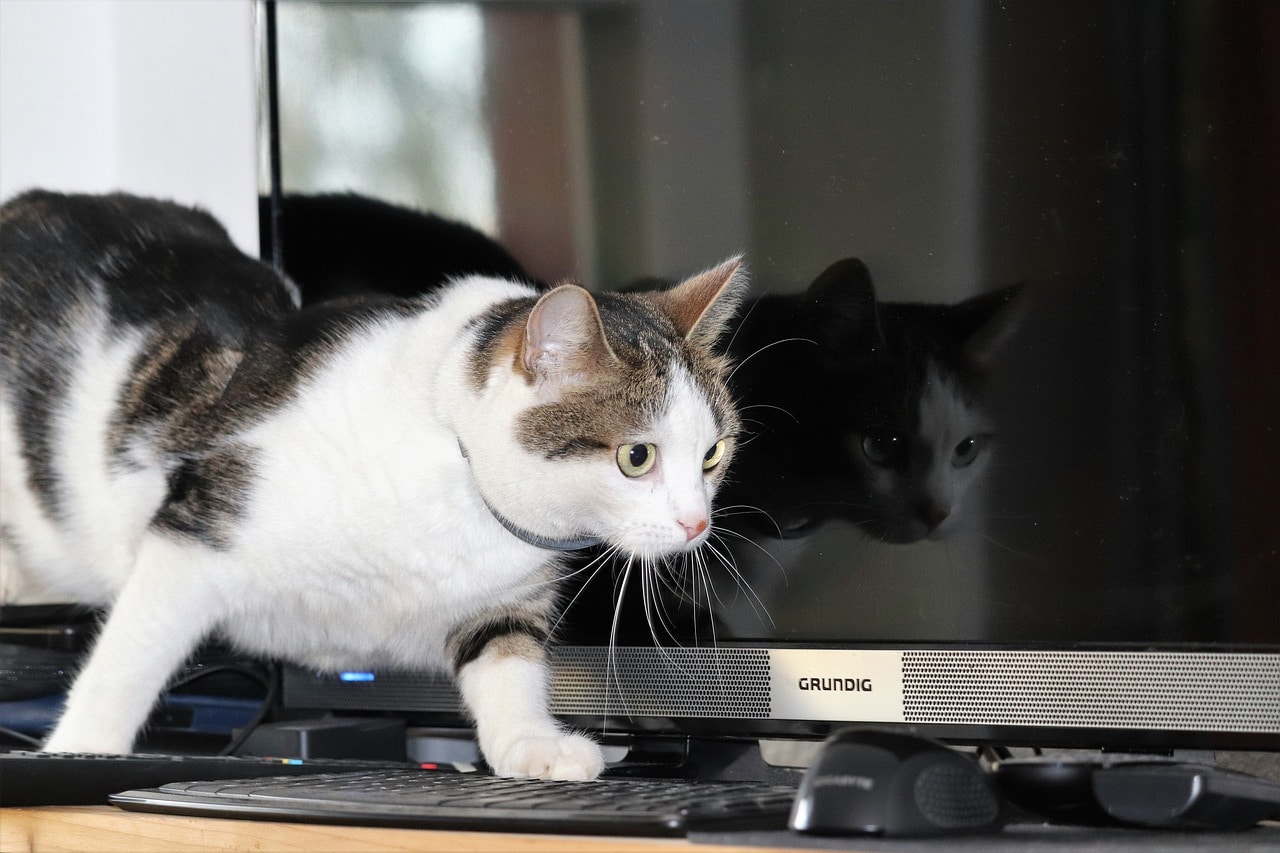How Often Should You Clean Your Cat’s Ears? Vet-Approved Facts & FAQs

Updated on
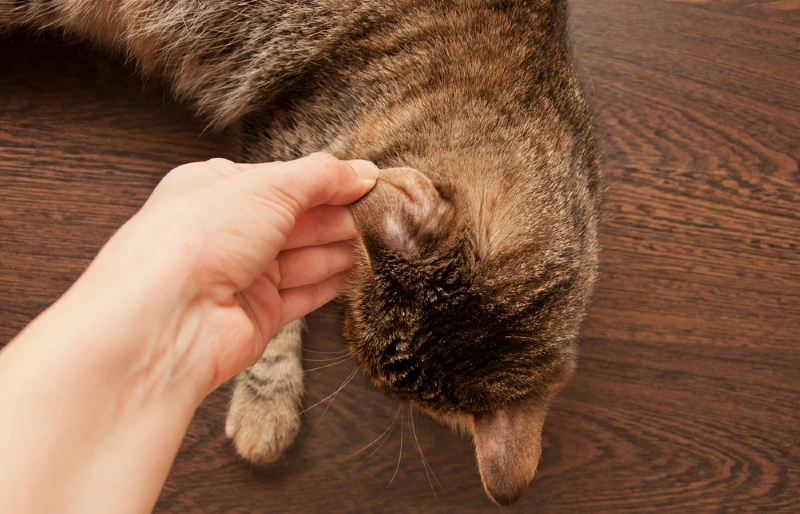
Cats have sensitive ears that can be susceptible to irritation, infections, and other ear problems if not maintained properly. That being said, healthy indoor cats don’t usually need their ears cleaned unless a veterinarian instructs you to do so. Healthy ears have systems in place to keep the ear both clean and healthy, and cats’ ears usually don’t need cleaning unless you start to notice any visible grime, discharge, or odor. In this article, we’ll provide you with information about when and how often you should clean your cat’s ears, especially if they venture outside.
How Often Should You Clean Your Cat’s Ears?
There is no set schedule for when you should clean your cat’s ears. For most healthy indoor cats, it is usually not necessary to clean their ears unless instructed by a veterinarian. But if you see dirt or debris, your cat needs to be regularly treated for ear mites, or if the ears are emitting a bad smell, you may need to clean them based on your veterinarian’s instructions.
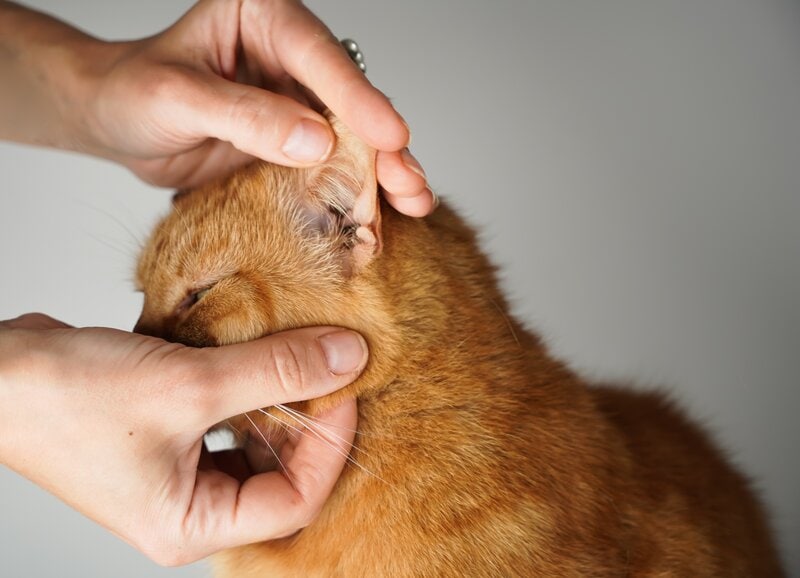
Ear Problems that Warrant a Veterinarian’s Input
- Dirt and Debris – If you can see dirt and debris in the ears, it’s a sign that your cat needs their ears cleaned. Yucky stuff like wax, dirt, or blackheads can easily accumulate in the ear canal of cats with longer fur, especially if they spend time outside, and need to be cleaned out.
- Ear Mites – Ear mites are tiny parasites that live inside the ears and cause itching, irritation, and shaking of the head. If your cat has an infestation of ear mites, you will likely see signs of a problem like excessive scratching and headshaking, and you’ll also be able to notice black specks inside and around your cat’s ears. Your vet can prescribe medication to treat the mites, but you may also need to clean your cat’s ears on a regular basis with an ear cleaner specifically designed for cats.
- Head Shaking – If your cat is shaking its head often or excessively, it may be an indication that there are some sort of irritants in the ears. Depending on the cause of the irritation, your vet might recommend a cleaning to remove whatever is causing the discomfort.
- Odor or Discharge – A bad odor or discharge from the ears can indicate infection and should be examined by your vet. If there is a bacterial infection, your vet may prescribe antibiotics and recommend that you clean the ears regularly with an ear cleaner specifically designed for cats.
Cleaning Guidelines
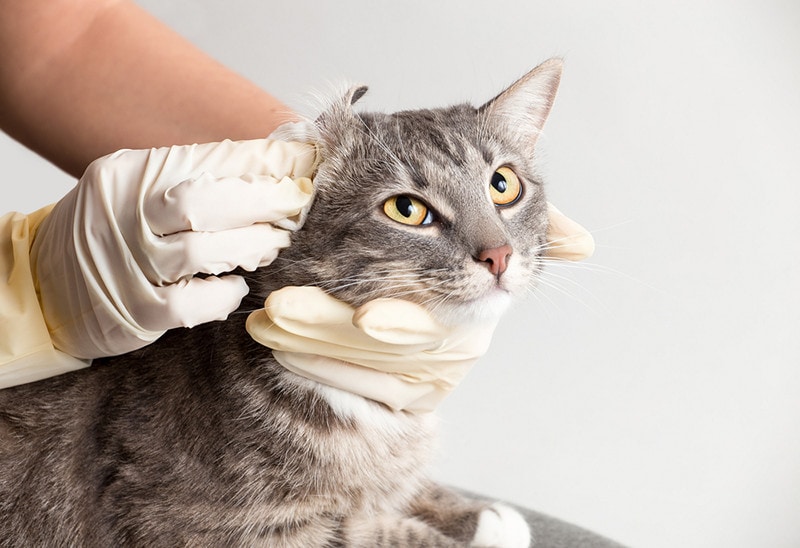
When cleaning your cat’s ears, use a clean rag dipped in warm water and gently wipe away any dirt or debris you see inside the ear canal. Be careful not to push too far into the ear as this can damage the delicate inner ear structures.
Avoid using hydrogen peroxide, alcohol, or other harsh chemicals as these can be irritating and painful to your cat’s ears. If you’re inexperienced, avoid using a Q-tip as these can cause damage to your cat’s ears and when used incorrectly will push dirt, grime, and ear wax further down their ear canal. Unless a veterinarian recommends a specific product or medication, only use warm water to clean your cat’s ears.
A Note About Ear Anatomy
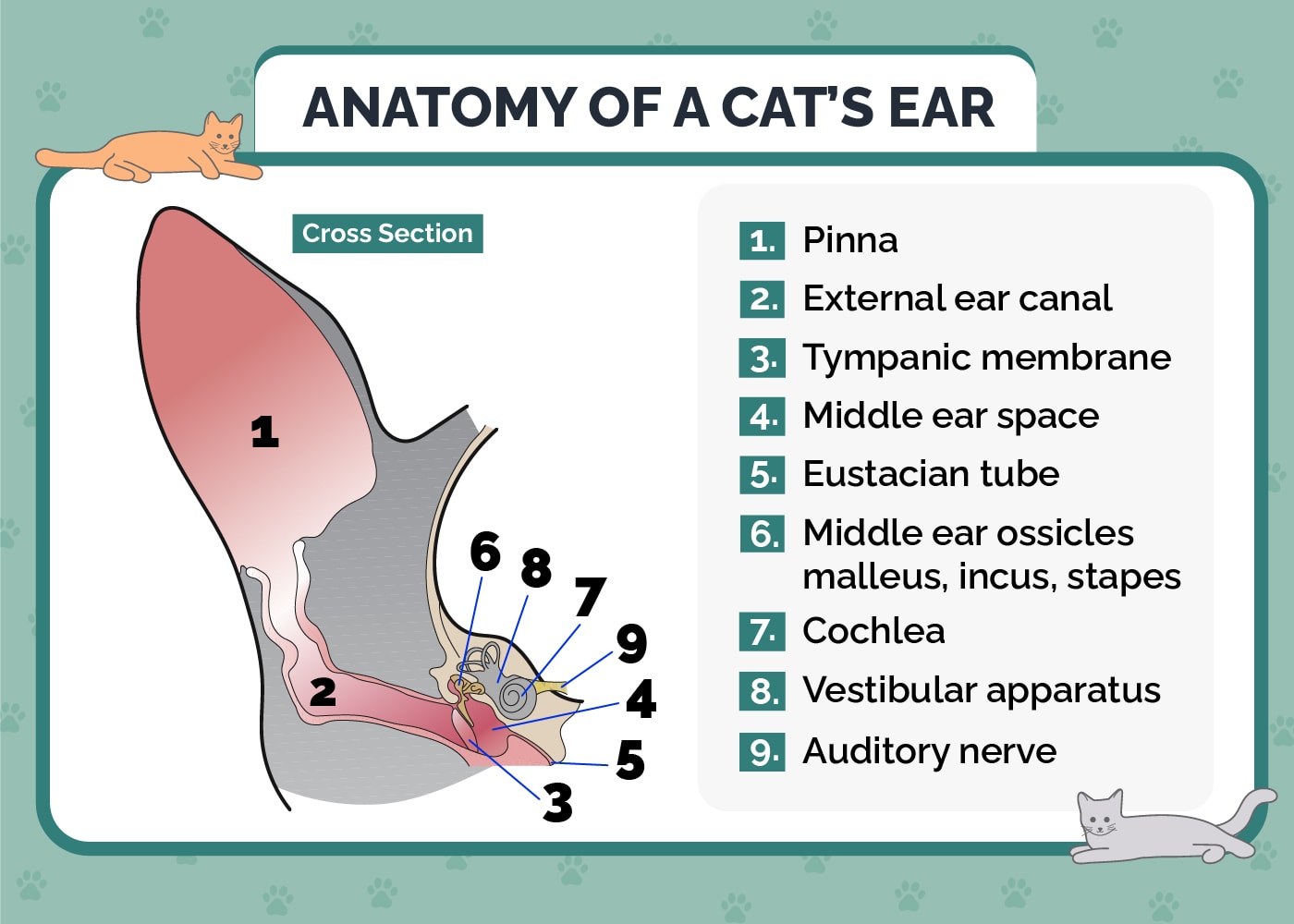
Understanding the shape of a cat’s ear can help you understand how to clean it. Your cat’s external ear consists of the ear pinna (or ear flaps) that you normally see and a canal that extends inwards towards your cat’s skull in an “L” shape.
Other Safety Tips for Cleaning Your Cat’s Ears
If you’re not comfortable cleaning your cat’s ears, ask your veterinarian to do it or recommend someone who can. Pet groomers can also help clean your pet’s ears if you are unable to do so.
What Should I Do If My Cat’s Ears Seem Really Dirty?
If your cat’s ears appear to be excessively dirty, it’s best to consult a veterinarian to determine the cause of the problem and proper cleaning regimen. You could be looking at something such as ear mites rather than just dirt. Your veterinarian can diagnose the issue and may recommend a specific cleanser or medication depending on the cause of the ear dirtiness.
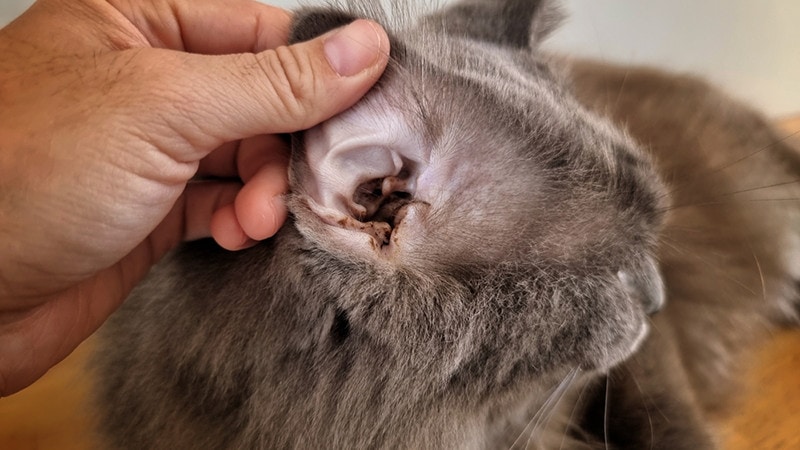
What Are Signs of An Ear Infection in Cats?
- Your cat shakes their head excessively
- Your cat frequently scratches one or both of their ears
- Your cat’s ears are warm to the touch, crusty, scaly, and possibly droopy
- There is an excessive buildup of brown to black wax in your cat’s ears
- There is a foul odor coming from your cat’s ears
- There is a yellowish, foul-smelling discharge from one or both of your cat’s ears
- You notice blood or dried blood scabs on one or both of your cat’s ears
What Should I Do If My Cat Has an Ear Infection?
If your cat has signs of an ear infection, it’s important to take it to the veterinarian right away. The vet can diagnose the cause of the infection as well as provide treatment options such as specific medications or cleaning regimens that can help clear up the infection and reduce pain and discomfort. It is also important to follow all instructions exactly as prescribed to ensure the infection is completely cleared up.
Does Cleaning My Cat’s Ears Help Prevent Ear Infections?
Regularly cleaning your cat’s ears isn’t necessary, unless your vet instructs you to do so. The skin of your cat’s ears is delicate, excessively cleaning it may cause damage to the ear or persistent irritation for your cat. If your vet instructs you to clean your cat’s ears, only use cat-safe ear drops that are prescribed by your vet. If you are unsure about any aspect of ear cleaning, be sure to consult your veterinarian for advice.
Products to Help Clean Your Cat’s Ears
- Ear Wipes – You can purchase specially designed ear wipes or pads to clean your cat’s ears. These are pre-moistened and help remove wax, dirt, and debris from the outer ear.
- Ear Cleaners – You can also buy cat-safe ear cleaners that are recommended by your veterinarian. These products may help loosen wax and debris in the ears and can be used to clean your cat’s ears regularly.
Cats are famously good at grooming themselves, but sometimes they need a little extra help. Natural, hypoallergenic wipes like our Hepper Wash Wipes can help you keep your cat clean without causing any irritation. These wipes are specifically designed to work on all ages of cats, gently cleaning sensitive areas while effectively removing dirt and grime.
- Gentle Care For All Pets - Infused with moisturizing hypoallergenic ingredients & enriched with...
- Deep Cleans From Head to Tail - Tackle the toughest dirt & messes with our extra strong pet wipes...

Conclusion
Healthy indoor cats rarely need their ears cleaned. If their ears appear exceptionally dirty or problematic, you should have them examined by a vet for a check up. When cleaning your cat’s ears, use gentle products specifically designed for cats and be careful not to push too far in the ear canal as this can cause damage.
Featured Image Credit: Nataliia Dvukhimenna, Shutterstock



